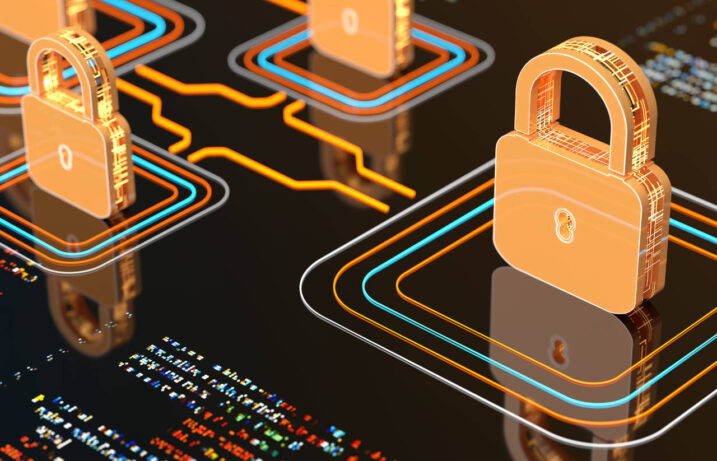The cybersecurity industry is booming, with cybersecurity professionals in high demand across the globe. As cyber threats grow in complexity, organizations are racing to fill critical cybersecurity roles to protect their computer systems, networks, and sensitive data. Whether you’re a beginner or transitioning from another field, this guide will help you navigate the cybersecurity career paths and land your first entry-level cybersecurity job.
What Is Cybersecurity?
Cybersecurity is the practice of protecting computer systems, operating systems, and information systems from cyberattacks. It involves identifying vulnerabilities, mitigating risks, and responding to data breaches. Cybersecurity professionals work across various disciplines, including network security, cloud security, and incident response, to safeguard digital assets.
Why Choose a Cybersecurity Career?
The cybersecurity field offers lucrative opportunities, job stability, and the chance to make a real-world impact. According to Microsoft’s 2024 Digital Defense Report, the company detected more than 600 million cyberattacks daily targeting its customers. With the rise of AI and emerging technologies, the cyber threat landscape is becoming increasingly dangerous and complex.
This constant demand for protection makes cybersecurity one of the smartest career choices today. Professionals in the field play a critical role in defending sensitive data, securing networks, and safeguarding organizations from evolving threats. Beyond the strong salaries and career growth potential, a career in cybersecurity means becoming part of the frontline defense that protects people, businesses, and even entire nations.
If you’re seeking a career that is future-proof, impactful, and filled with opportunities to grow, cybersecurity is the path worth pursuing.
Cybersecurity Career Paths
The cybersecurity field offers diverse career paths for professionals with varying skill sets and interests. Here are some popular roles:
- Cybersecurity Analyst: Monitors systems for threats and implements security measures.
- Penetration Tester: Conducts penetration testing to identify and exploit vulnerabilities.
- SOC Analyst: Works in a Security Operations Center (SOC) to detect and respond to incidents.
- Cloud Security Specialist: Manages access and authorization to cloud-based systems by implementing a variety of security measures.
- Security Manager: Oversees the procedures, policies, and actions that protect their organization’s networks and information security.
- Cybersecurity Engineer: Designs and implements security solutions for computer systems.
Do You Need a Degree to Get Into Cybersecurity?
While a bachelor’s degree in computer science or a related field can be helpful, it’s not always required for entry-level positions. Many entry-level cybersecurity jobs prioritize technical skills, cybersecurity certifications, and hands-on experience over formal education. This makes cybersecurity accessible to individuals from diverse backgrounds.
Skills Needed for a Cybersecurity Career
Technical Skills
- Programming Languages: Knowledge of Python, Java, and SQL is essential for tasks like scripting and automation.
- Risk Assessment: Identifying and mitigating risks to protect systems.
- Firewalls and Network Security: Configuring and managing security tools.
- Linux: Familiarity with this operating system is crucial for many cybersecurity tools.
- Incident Response: Detecting and responding to cyberattacks and breaches.
Soft Skills
- Problem-Solving: Critical for identifying and addressing security challenges.
- Communication: Explaining technical concepts to non-technical stakeholders.
- Teamwork: Collaborating with IT and security teams.
- Adaptability: Staying updated on the latest cyber threats and technologies.
Recommended Cybersecurity Certifications
Certifications are a great way to validate your cybersecurity skills and stand out to hiring managers. Here are some of the most in-demand certifications:
- CompTIA Security+: Covers fundamentals like network security, risk management, and threat analysis.
- Certified Ethical Hacker (CEH): Focuses on penetration testing and ethical hacking.
- Certified Information Systems Security Professional (CISSP): Ideal for experienced professionals looking to advance their careers.
- GIAC Security Essentials Certification (GSEC): Validates skills in incident response, cryptography, and cloud security.
How to Get Into Cybersecurity
1. Transitioning from Another Technical Field
If you have experience in information technology or software development, you already have transferable skills like risk assessment, programming, and network security. Focus on building expertise in areas like firewalls, malware analysis, and incident response.
2. Starting from Scratch
For those without a technical background, start by learning the fundamentals of networking, operating systems, and cybersecurity concepts. Enroll in online courses or cybersecurity bootcamps to gain hands-on experience and build a strong foundation.
3. Gaining Work Experience
Internships and entry-level positions like help desk or systems administrator roles can provide valuable work experience and help you transition into cybersecurity.
Paths to Learning Cybersecurity
Self-Study
- Pros: Flexible and cost-effective.
- Cons: Requires discipline and can be time-consuming.
Traditional Degree
- Pros: Comprehensive education and networking opportunities.
- Cons: Expensive and time-intensive.
Cybersecurity Bootcamp
- Pros: Fast, hands-on, and focused on industry-relevant skills.
- Cons: Intensive learning pace.
Cybersecurity Projects to Build Your Portfolio
Building a portfolio of cybersecurity projects is essential for showcasing your skills to hiring managers. Here are some ideas:
- Create a firewall configuration to secure a network.
- Conduct a penetration test in a simulated environment.
- Develop a script in Python to automate security tasks.
- Analyze a malware sample and document your findings.
Get Started Today
The cybersecurity field is full of opportunities for those willing to learn and adapt. Whether you’re a beginner or an experienced professional, there’s a path for you. Start by gaining the necessary cybersecurity skills, earning certifications, and building hands-on experience. With dedication and the right resources, you can launch a successful cybersecurity career.
Apply now for our Cybersecurity Bootcamp and take the first step toward becoming a future-ready cybersecurity professional.




